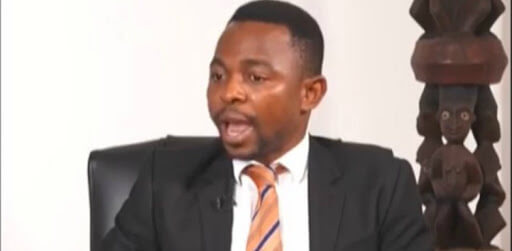As part of ongoing efforts to mitigate the impact of the coronavirus on businesses in Ghana, the government has tasked its Finance Minister, Ken Ofori-Atta, to come up with an economic recovery plan to get the country’s economy back online.
This was announced by President Akuffo-Addo during his 9th Covid-19 national address on Sunday, May 1o, 2020.
But an Economist with the Databank Group, Courage Boti, has urged government to focus the economic recovery plan on those sectors that will give the country the most immediate returns, turnaround the economy and create jobs while keeping the incomes of people at an appreciable level.
He said even though all the other sectors are also feeling the brunt of the outbreak of the Covid-19 pandemic and would need help, concentrating the economic recovery plan on industries to produce the most essential needs of the country will be the best approach.
“I think we can focus on import substitution, the very basic things that we import, but can produce locally. Let’s support those industries to produce.
‘For instance, we needed PPEs and we were going to import them because we don’t produce them but by virtue of government collaborating with pharmaceutical companies and others they have been able to produce some of these things internally to cut the import budge of the country ”, he observed.
Mr Boti made these remarks while speaking on the ‘Business Live’ programme on the Joy News Channel
Impact of the pandemic on Ghana
The Novel Coronavirus pandemic has swamped Ghana’s economy, making useless of the gains chalked in recent times.
The economy is projected to plummet from a target of 6.8% to about 2.6% in 2020 due to the ravaging impact of the coronavirus pandemic.
Similarly, revenue for the country is also predicted to fall significantly in 2020.
Last month, Ghana’s Finance Minister, Ken Ofori Atta, told the country’s parliament that government will lose revenue in the 2020 fiscal year to the tune of about US$1.9 billion. This is equivalent to 2.5 percent of the country’s GDP, as a result of Covid-19.
Additionally, the estimated impact on the country’s tax revenue is pegged at GH₵808 million shortfall in import duties and GH₵1,446 million loss in other non-oil tax revenue. Whilst overall total deficit in non-oil tax revenue for the year is estimated at GH₵2,254 million.
To make up for these shortfalls and raise funding funding to combat the pandemic, government has gone to the external market to seek emergency support.
The International Monetary Funds (IMF) has given the country about $ 1 billion dollars under the Rapid Credit Facility, the World Bank Group has also given $100 million dollars.
Aside from these, government has also dipped it hands into the Stabilization Fund to withdraw about $200 million dollars from it.
Economy to recover in 2022
With Ghana and the world is not certain on when the battle against the pandemic would be won, economic experts have expressed fears that things could even go worse for the country.
Responding to questions on how long it will take Ghana’s economy to recover from the shocks of the pandemic, Mr Boti says it will take between two to three years, assuming the virus is contained before the end of 2020.
“The longer it takes Covid-19 to go away, the longer the length of the time to recover. But I am assuming that we may be out of the woods by end of year and when that happens it will take us up to 2022 thereabout, in my estimation, for us to completely come out of the woods”, he explained.
Accordingly, the Economist said although the pandemic has disrupted Ghana’s fiscal budget, government must to invest all the monies that it procured from the IMF, World Bank and the Stabilisation Fund into the most critical areas of the economy to limit the impact of the virus outbreak on the lives of its citizens.
By Salifu B.B. Moro











